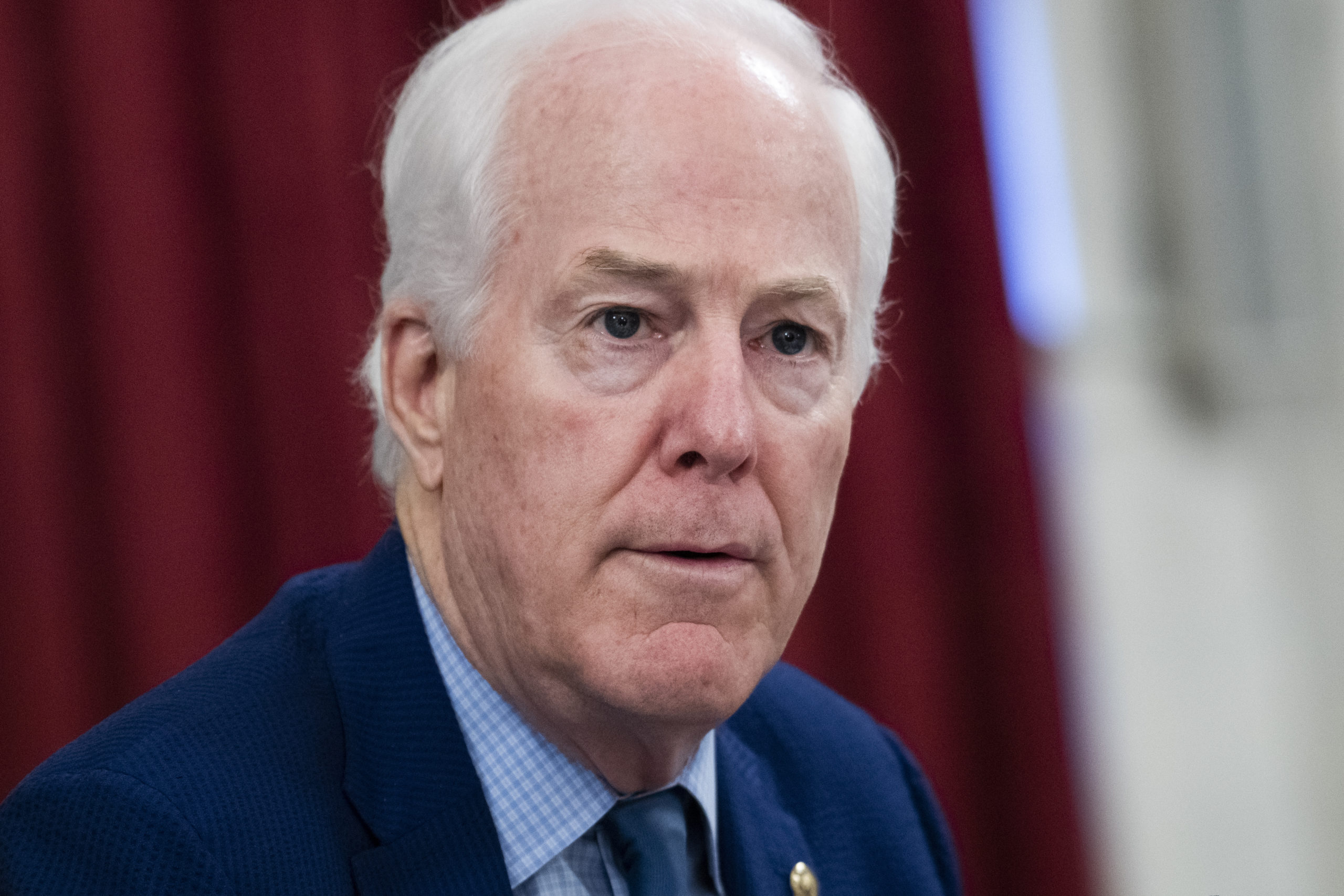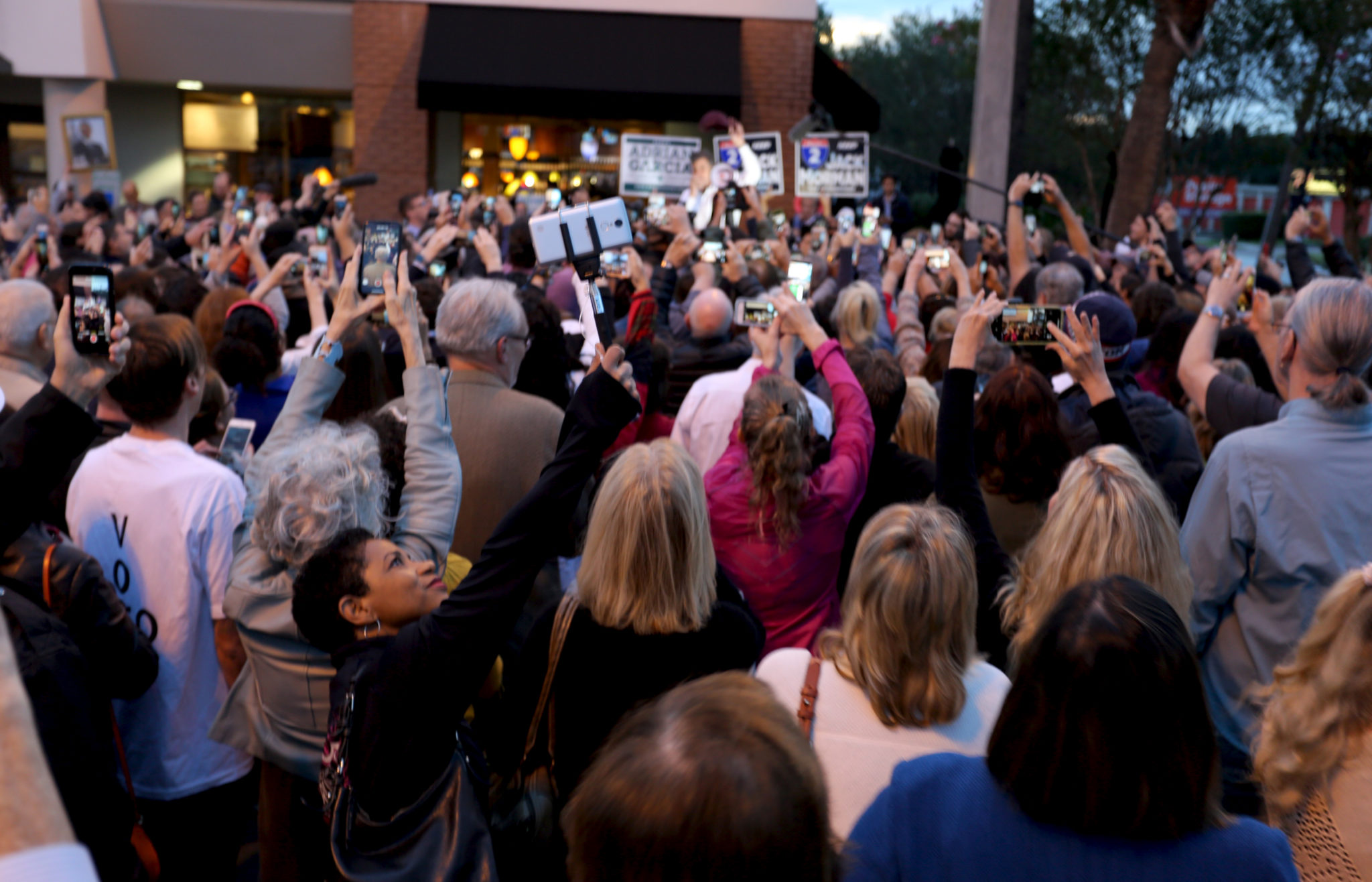
Questions About Politics in 2020 That Aren’t ‘Will Texas Turn Blue?’
Democrats and Republicans are gearing up for a clash in Texas. Here’s the context you need to understand the coming year in politics.

As we head into 2020, brace yourself for an onslaught of headlines from national media posing a reductive question: “Will Texas Turn Blue?” It’s become something of a biannual assignment for political commentators.
Yes, 2020 could very likely be a banner election cycle for Texas Democrats. The political future of the state is on the line for perhaps the first time this century. Democrats are charged up, brimming with grassroots activism, and eager to build on the progress made by Beto O’Rourke’s near-win and the substantial down-ballot gains that came with it. The possibility of a once-in-a-generation political realignment—fueled by a surge of young and diverse voters and a breakdown of the GOP’s suburban red wall—is, indeed, very real.
But be wary of those who pontificate on the political hue of Texas. Focusing on the question of whether Trump—and similarly, U.S. Senator John Cornyn—could lose here just obscures the many other potential sea changes that are just as consequential to the future of Lone Star politics, if not more so.
As we head into 2020, here are a handful of important questions that will better track the contours, trends, and dilemmas of this political moment.
1. Can Republicans Walk the Trump Tightrope in the Blue-ing ‘Burbs?

Trump has become a liability for Republicans in the Texas suburbs. They won’t admit this fact in public, but they freely acknowledge it in private—House Speaker Dennis Bonnen did in a secretly recorded conversation, and so did a GOP staffer in a leaked memo. The state’s Republican leaders—Abbott, Patrick, Cruz, Cornyn, and on down—have shamelessly hitched their political wagons to Trump, wagering that staunch support is a safer bet than even the most timid opposition, if they want to keep winning statewide.
But the party’s wholesale adoption of Trumpism has created political vulnerabilities out in the trenches. The consequences of the Republican party’s allegiance to Trump will be found down the ballot in competitive suburban congressional and legislative districts in the Dallas-Fort Worth, Houston, and Austin metros. You’ll learn far more from watching these races than a Trump rally at the Toyota Center.
Democrats are expected to make serious plays for at least a half-dozen suburban congressional seats, as well as more than a dozen state House seats that could be primed to flip amid demographic changes and Trump-weariness.
How Republicans navigate the politics of Trump in these districts will go a long way in showing whether the party believes it’s wise to pull away from the president in an effort to win back moderates and arrest Democrats’ advances into the suburbs, or if they prefer to scorch the earth and see what happens. The effectiveness of their chosen strategy could determine whether the Democratic surge in the suburbs in 2018 was the first stage of a larger sustained political shift—one that could cost Republicans control of the state House, several congressional districts, and, yes, help pave the way for a statewide upset—or if it was all just a mirage at the end of the subdivision cul-de-sac.
2. Who Will Prevail in the Democratic Senate Primary?
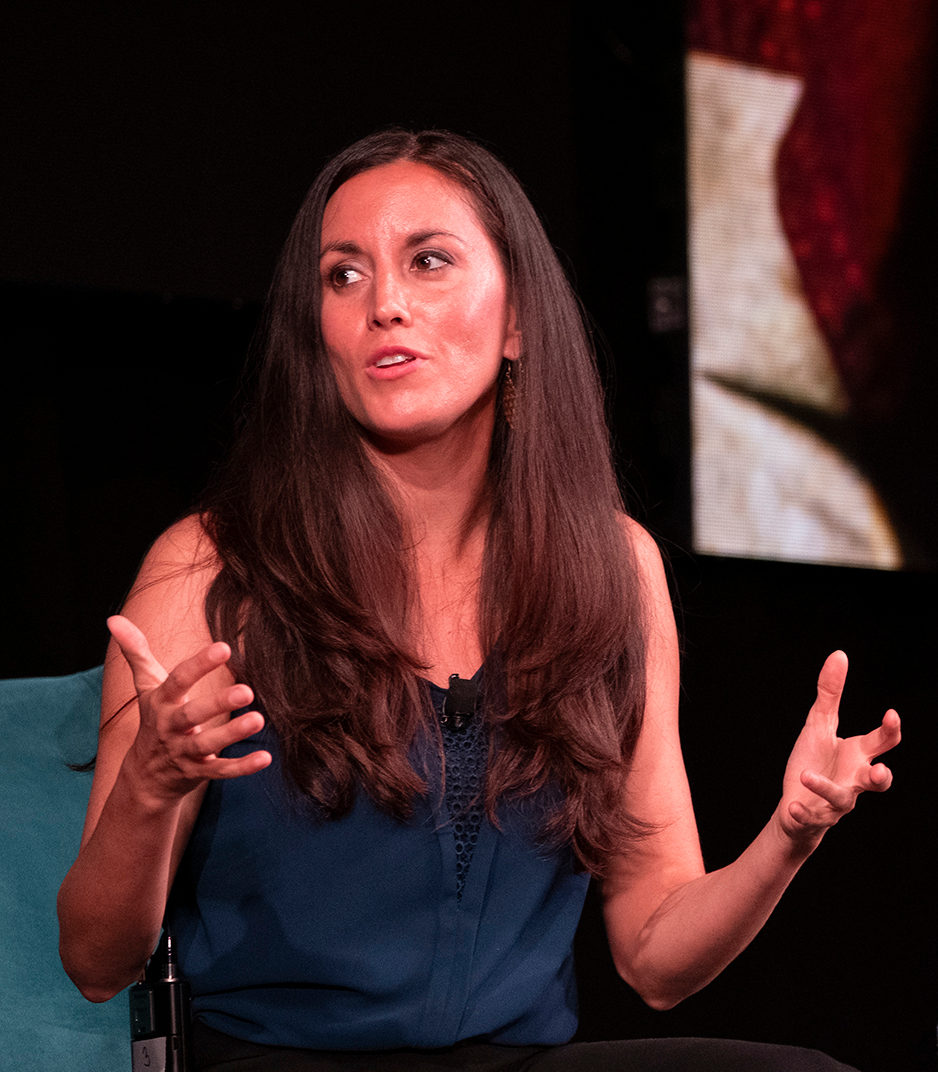
For how much the national media loves Texas politics, the Democratic Senate primary race to take on Republican Senator John Cornyn has so far been a low-key, undercovered affair. Alas, the ideological battle being waged between progressives and moderates in the Democratic presidential primary seems to have sucked up all the political oxygen. But the Texas primary has taken on a somewhat similar (albeit more muted) dynamic.
The race has recently become animated by a debate over how to best build upon O’Rourke’s 2018 campaign, which came within 200,000 votes of defeating Cruz. Candidates like organizer Cristina Tzintún Ramirez and former congressman Chris Bell have embraced policies like Medicare for All and mandatory assault weapon buybacks, while others like veteran and former congressional candidate MJ Hegar (who was recently endorsed by the Democratic Senate Campaign Committee) and Dallas state Senator Royce West have tacked toward the middle. Tzintún Ramirez believes progressive politics is the best way to mobilize a winning coalition of young people and voters of color, particularly the state’s surging Latinx population. Hegar, meanwhile, argues that the path to statewide victory hinges not on ideology, but on a message of “ass-kicking” political independence that could better appeal to suburban and rural voters.
Even though he’s (finally, officially) not running for Senate, Beto will still play a prominent part in the race. No candidate is likely capable of rekindling his political magic. But they all have their own interpretations of how to build on his 2018 campaign, casting the race with the inevitable question of WWBD—What Would Beto Do?
3. Can a New Guard Take on the Democratic Old Guard?
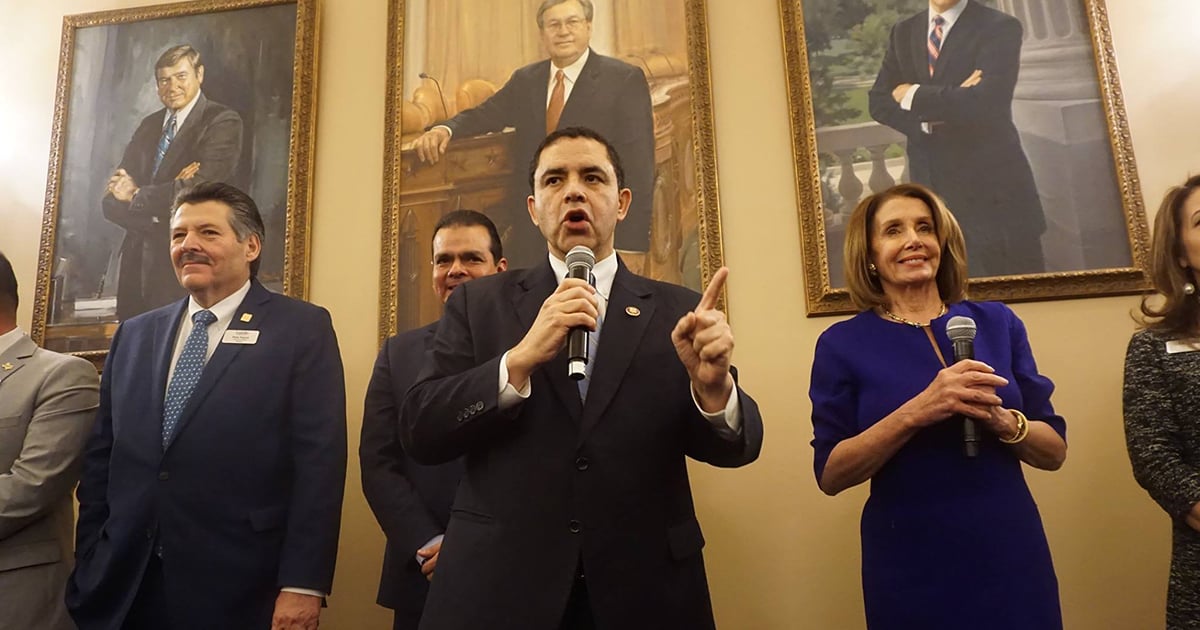
The resurgence of the Democratic Party in Texas has included a burgeoning progressive bloc that’s grown more organized and self-assured. In 2020, insurgent candidates from Houston to Austin to deep South Texas are taking on establishment Democrats who, they contend, have grown out-of-step with the party base.
Jessica Cisneros, a 26-year-old lawyer, has won the support of a long list of national liberal groups as she seeks to oust Henry Cuellar, a conservative blue dog Democrat from Laredo. The 28th District—which stretches from Laredo along the border toward McAllen and up to the San Antonio suburbs—is firmly blue, but Cuellar argues that his political views mirror those of the voters. In his view, the 28th may be Democratic, but it’s not liberal. Cisneros believes the district is more progressive than Cuellar lets on, and that voters simply haven’t been offered a more progressive alternative. Down in Brownsville, state Senator Eddie Lucio Jr. is another conservative border Democrat facing a serious primary challenge.
At the local level, Harris County District Attorney Kim Ogg is also facing a challenger in the Democratic primary. First elected as a criminal justice reformer in 2016, Ogg has since drawn the ire of reform advocates for failing to follow through on her promises—most notably, on bail reform. Audia Jones, a former Harris County prosecutor who quit after becoming fed up with Ogg’s leadership, is challenging Ogg from the left, focusing her campaign on a radical vision to dismantle mass incarceration.
Several veteran Democratic state lawmakers from Houston are also facing primary challenges. They include state Representative Harold Dutton, who has drawn heat for his role in advancing laws that paved the way for Houston’s public school system to be taken over by the state, and state Senator Borris Miles, who has been accused of sexual misconduct.
In Travis County, Jose Garza, who led the labor advocacy group Workers Defense Project, and UT law professor Erin Martinson are challenging District Attorney Margaret Moore, who has been plagued by scandals over how she’s handled sexual assault cases.
Established incumbents are extremely difficult to oust. But if these insurgent challengers are able to string together a series of primary upsets, they could usher in a new guard of Democratic leaders charting a new path for the party in Texas.
4. Could We See a Political Backslide?
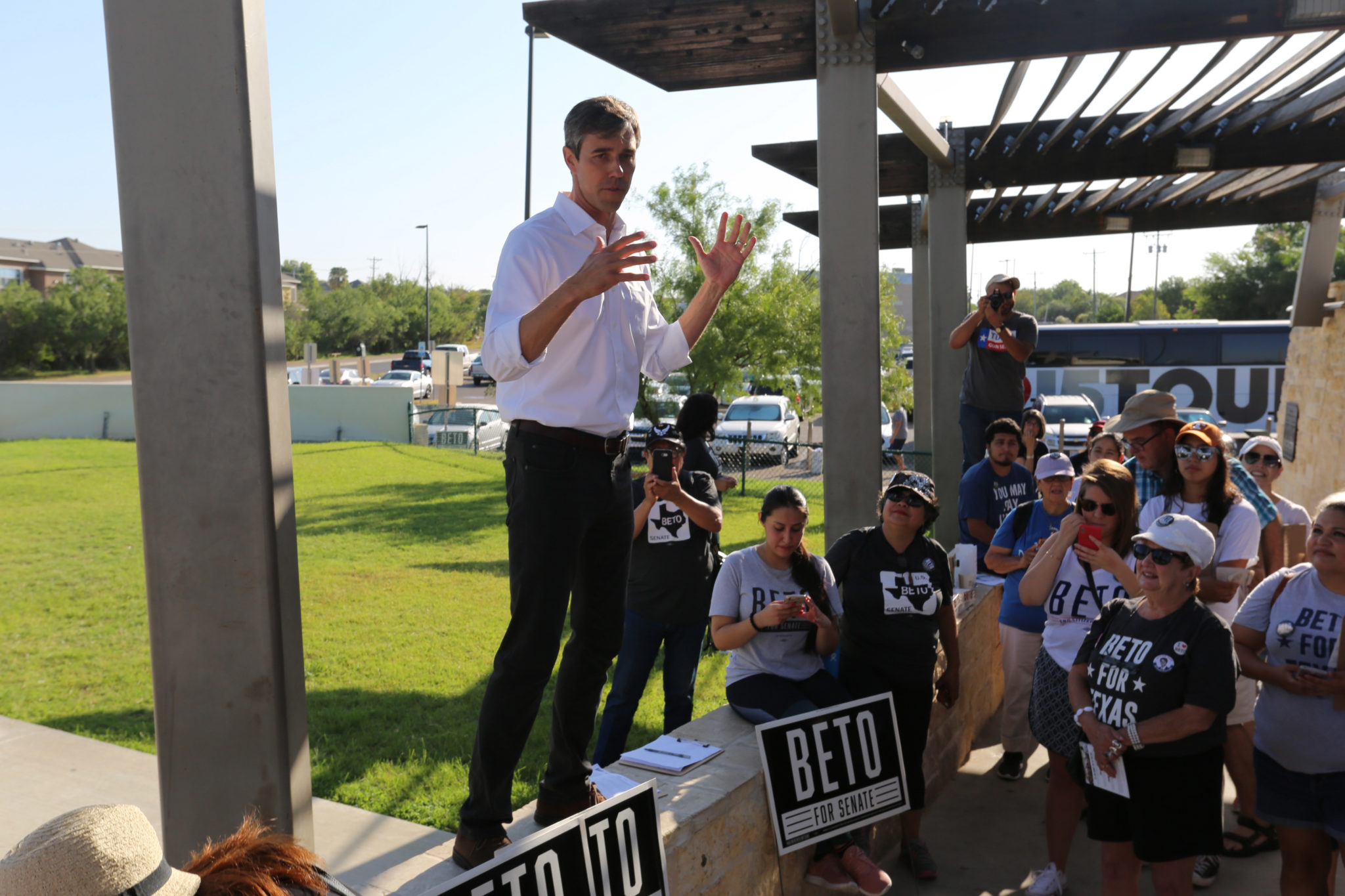
Trump and Cornyn will likely win statewide in November. But even if they do, the political landscape might well have shifted in 2020. Texas is very likely entering a new era that features an actual functioning two-party political system. That’s a reality essentially unknown in the state since the Karl Rovian Revolution in the 1990s broke the previous Democratic dominance and ushered in nearly 40 years of Republican control.
But, wait! There’s always the chance that Texas will Texas and—with the right amount of GOP savvy, Democratic incompetence, or both—the electorate may just run back into the familiar arms of the GOP. Change, after all, is scary, and Republicans are quite good at exploiting those fears.
This has happened before. In 2006 and 2008, Democrats knocked off several Republican state reps and very nearly took control of the House, sparking hope of a liberal revival. But it didn’t last. The tea party wave of 2010 swiftly decimated the Democrats’ legislative ranks. And don’t forget Wendy Davis’ gubernatorial campaign implosion in 2014, which gutted the party’s base.
Perhaps O’Rourke and the Democrats were just hitting their collective head on Texas’ blue ceiling. And don’t discount the possibility that a moribund Democratic presidential nominee, a lackluster Senate candidate, and, perhaps, a surge in Trump’s favorability could all but crush the party’s hopes of winning the state House and expanding its congressional seats. A far more dire scenario would be that Republicans are also able to wrest back the Dems’ 2018 gains.
Voters don’t always act in accordance with the tidy narratives favored by the media. More often, political shifts happen in confounding fits and starts.
Anyway, we’ll have much more concrete answers to these questions in next year’s obligatory year-end politics post. After all, hindsight is … 2020.
Read more from the Observer:
-
The 30 Best Texas Books of The Decade, from Amarillo to Utopia: As you scramble for a holiday gift or ponder what you’d like to peruse by the fire, we’ve got 10 years of Texas books to suggest.
-
As TCEQ Sits Idle, Polluters Double Illegal Air Pollution in 2018: Unauthorized emission incidents resulted in 135 million pounds of illegal air pollution, according to a new report by Environment Texas.
-
In Dallas, Churches Break the Law to Shelter Homeless People on Freezing Nights: A city ordinance prevents churches and virtually anyone else from acting as emergency shelters, but some are offering safe haven anyway.


